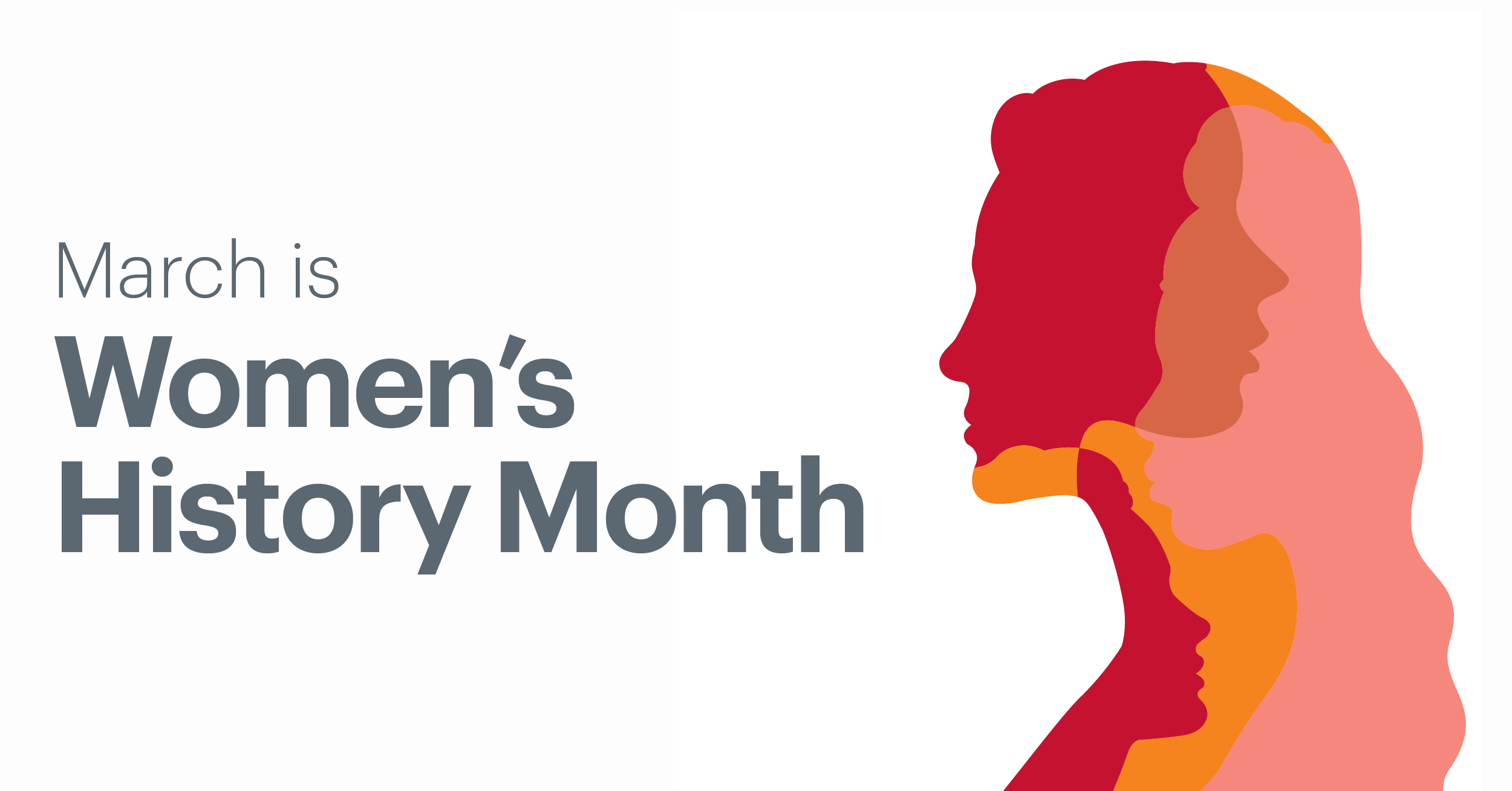
History of Women’s History Month
Women’s History Month, observed annually in March, serves as a poignant reminder of the invaluable contributions women have made. It is a time to celebrate the achievements, milestones and resilience of women from diverse backgrounds.
The seeds of Women’s History Month were sown during the early 20th century with the emergence of International Women’s Day. The first International Women’s Day was observed in 1911, as a result of the growing global movement for women’s rights and suffrage. This day became a focal point for advocating women’s equality and sparked discussions about the need for a more comprehensive recognition of women’s contributions.
The idea of a dedicated month for women’s history gained momentum in the United States during the 1970s. The catalyst for this movement was the education sector, specifically the Sonoma County, California school district. In 1978, the district organized a week-long celebration of women’s history, an initiative spearheaded by educators Molly Murphy MacGregor, Mary Ruthsdotter, Maria Cuevas, Paula Hammett and Bette Morgan. The success of this local event inspired broader efforts to expand the celebration.
Encouraged by the success of Women’s History Week, the National Women’s History Project (NWHP) — founded by Molly Murphy MacGregor and others — lobbied for national recognition. In 1980, President Jimmy Carter issued the first presidential proclamation declaring the week of March 8 as National Women’s History Week. The success of Women’s History Month in the United States inspired other countries to adopt similar observances. Today, Women’s History Month is recognized and celebrated globally.

Women’s Impact in Chicago: Hull House
In the 19th and early 20th centuries, Chicago witnessed the rise of pioneering women who defied societal norms to make their mark. Figures like Ida B. Wells, a journalist and anti-lynching activist, and Jane Addams, a social reformer and the founder of Hull House, were instrumental in addressing issues of racial injustice and advocating for social change. Addams played a crucial role in establishing the settlement house movement which provided vital services and support to immigrant communities.
Addams and her colleague Ellen Gates Starr founded Hull House with the vision of creating a space that would serve as a community center, providing essential services to Chicago’s diverse immigrant population. The mission of Hull House was to challenge the pressing issues of poverty, overcrowded living conditions and lack of educational opportunities faced by immigrants in the surrounding neighborhood.
Hull House was not just a physical space — it was a dynamic institution that offered a range of services. These services included childcare, educational programs, job training and healthcare. Addams and Starr envisioned Hull House as a place where residents could come together to address social issues collaboratively. It met the immediate needs of Chicago’s immigrant population by providing various social services. The settlement house offered educational programs, childcare services, job training and cultural activities, which contributed to the overall development and well-being of the community. These services had a tangible and positive impact on the lives of residents, helping them navigate the challenges of assimilation and urban life.
The principles of social justice and community empowerment espoused by Hull House continue to influence social justice movements in Chicago and beyond. While Hull House itself closed in 2012 due to financial challenges and shifting social service models, its legacy endures. The impact of Hull House on Chicago remains a testament to the transformative power of community-based initiatives and the dedication of individuals committed to social reform and the betterment of society.
Women-Owned Businesses in Chicago
The Shudio
1152 W.18th St.
Merl Kinzie started her eco-boutique in 2015 to make it easier to shop green, outfitting a Pilsen space with a workshop and metalsmith studio. Here Kinzie makes jewelry from recycled materials and hosts regular DIY workshops. The store also stocks plants and vintage women’s clothing and accessories, plus handmade ceramics and vegan bath and body products that are made by local female artists and entrepreneurs.
Women and Children First
5233 N. Clark St.
Women & Children First opened in 1979, seeking to prioritize the voices of women and has grown to focus on all underrepresented voices by promoting BIPOC and LGBTQ+ literature. The founders sold the Andersonville store to staffers Lynn Mooney and Sarah Hollenbeck in 2014 and the pair have continued to build on the shop’s mission by curating a robust children’s section that focuses on nontraditional family structures, kids of color, girls and nonbinary kids.
Bon Femmes
4917 N. Damen Ave.
After starting a fashion and art blog in 2015, Omotola Akinbiyi became keenly aware of how unrepresented women were in the art world and set about trying to share their work and stories through Bon Femmes, a digital storefront featuring art, beauty products and home decor that is all made by women. The digital storefront adds new items monthly, ranging from prints to candles, and Akinbiyi donates a portion of her proceeds to female-run charities. Throughout March, Bon Femmes’ beneficiary is Sarah’s Circle, an Uptown nonprofit that assists unhoused women.


